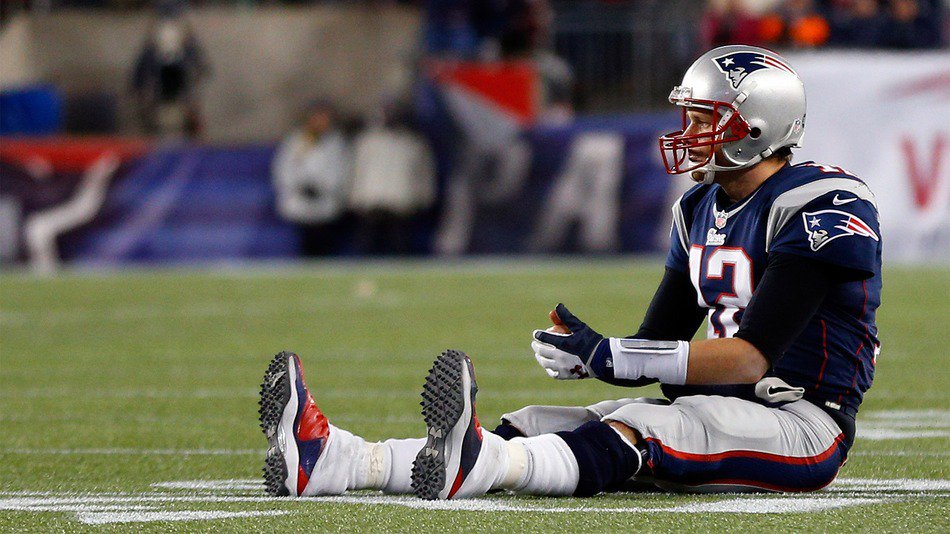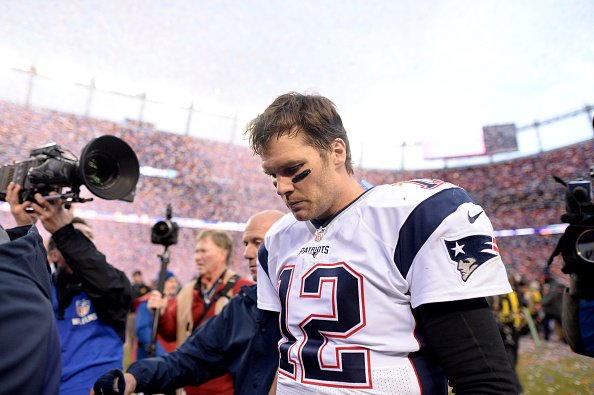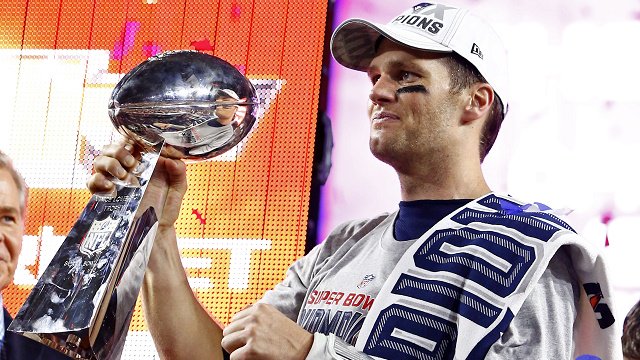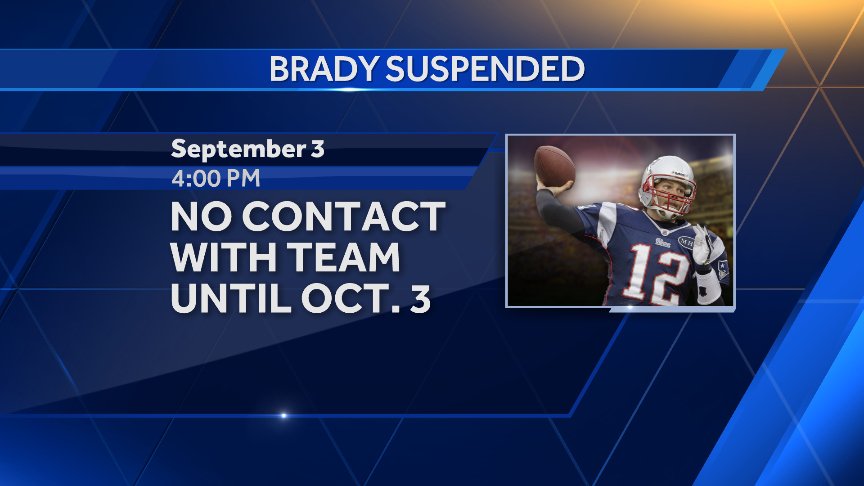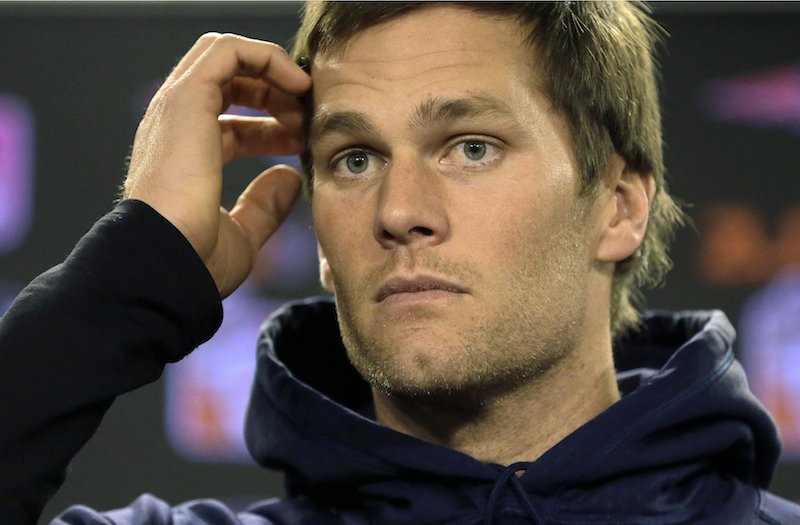You are using an out of date browser. It may not display this or other websites correctly.
You should upgrade or use an alternative browser.
You should upgrade or use an alternative browser.
Tom Brady announces he is ending his Deflategate Battle.
- Thread starter Greenbacks
- Start date
Tom Brady announced Friday that he will not appeal his four-game Deflategate suspension to the U.S. Supreme Court, saying in a message on his Facebook page that he will "no longer proceed with the legal process."
The 2nd U.S. Circuit Court of Appeals in Manhattan rejected Brady's latest appeal of the suspension Wednesday, meaning that his last hope to avoid serving the suspension would be to appeal to the Supreme Court.
Although Brady indicated that he has dropped out of the appeal process, the NFL Players Association said in a statement that it still might petition the ruling to the Supreme Court.
"After careful consideration and discussion with Tom Brady, the NFLPA will not be seeking a stay of the four game suspension with the 2nd Circuit," the union's statement said. "This decision was made in the interest of certainty and planning for Tom prior to the New England Patriots season. We will continue to review all of our options and we reserve our rights to petition for cert to the Supreme Court."
A source told ESPN's Adam Schefter that the union is expected to petition for cert in an effort to challenge NFL commissioner Roger Goodell's power.
The ruling Wednesday was a one-sentence rejection of requests by the NFLPA and Brady to reconsider an April decision that found that Goodell acted within his powers by suspending the Patriots' star quarterback for his role in a scheme to doctor footballs used in a January 2015 playoff game.
Brady will miss the Patriots' first four games this season against the Arizona Cardinals, Miami Dolphins, Houston Texans and Buffalo Bills. He will make his regular-season debut in Week 5 against the Cleveland Browns.
What began as an accusation of cheating in the AFC Championship Game has grown into a multimillion-dollar legal battle over three NFL seasons involving not just an MVP quarterback but also some of the elite lawyers and scientists in the country.
As it developed, it evolved from a dispute about the air pressure in footballs into a referendum on the powers of a sport's commissioner and the right of all unionized employees to due process in a disciplinary hearing.
Information from The Associated Press was used in this report.
The 2nd U.S. Circuit Court of Appeals in Manhattan rejected Brady's latest appeal of the suspension Wednesday, meaning that his last hope to avoid serving the suspension would be to appeal to the Supreme Court.
Although Brady indicated that he has dropped out of the appeal process, the NFL Players Association said in a statement that it still might petition the ruling to the Supreme Court.
"After careful consideration and discussion with Tom Brady, the NFLPA will not be seeking a stay of the four game suspension with the 2nd Circuit," the union's statement said. "This decision was made in the interest of certainty and planning for Tom prior to the New England Patriots season. We will continue to review all of our options and we reserve our rights to petition for cert to the Supreme Court."
A source told ESPN's Adam Schefter that the union is expected to petition for cert in an effort to challenge NFL commissioner Roger Goodell's power.
The ruling Wednesday was a one-sentence rejection of requests by the NFLPA and Brady to reconsider an April decision that found that Goodell acted within his powers by suspending the Patriots' star quarterback for his role in a scheme to doctor footballs used in a January 2015 playoff game.
Brady will miss the Patriots' first four games this season against the Arizona Cardinals, Miami Dolphins, Houston Texans and Buffalo Bills. He will make his regular-season debut in Week 5 against the Cleveland Browns.
What began as an accusation of cheating in the AFC Championship Game has grown into a multimillion-dollar legal battle over three NFL seasons involving not just an MVP quarterback but also some of the elite lawyers and scientists in the country.
As it developed, it evolved from a dispute about the air pressure in footballs into a referendum on the powers of a sport's commissioner and the right of all unionized employees to due process in a disciplinary hearing.
Information from The Associated Press was used in this report.
Tom Brady Facebook post.
<a class="_39g5" href="https://www.facebook.com/TomBrady/posts/1188349551206193" target="_blank"><abbr title="Friday, July 15, 2016 at 12:50pm" data-utime="1468601450" class="timestamp"></abbr>
<a class="_39g5" href="https://www.facebook.com/TomBrady/posts/1188349551206193" target="_blank"><abbr title="Friday, July 15, 2016 at 12:50pm" data-utime="1468601450" class="timestamp"></abbr>
Here`s his facebook post.
I'm very grateful for the overwhelming support I've received from Mr. Kraft, the Kraft family, coach Belichick, my coaches and teammates, the NFLPA, my agents, my loving family and most of all, our fans. It has been a challenging 18 months and I have made the difficult decision to no longer proceed with the legal process. I'm going to work hard to be the best player I can be for the New England Patriots and I look forward to having the opportunity to return to the field this fall.
I'm very grateful for the overwhelming support I've received from Mr. Kraft, the Kraft family, coach Belichick, my coaches and teammates, the NFLPA, my agents, my loving family and most of all, our fans. It has been a challenging 18 months and I have made the difficult decision to no longer proceed with the legal process. I'm going to work hard to be the best player I can be for the New England Patriots and I look forward to having the opportunity to return to the field this fall.
What`s a Tom Brady thread without pictures 



Patriots owner Robert Kraft issued the following statement today:
"While I was disappointed with the 2nd U.S. Circuit Court of Appeals' decision not to rehear Tom Brady's case, I am most frustrated that Tom was denied his right to a fair and impartial process. The League's investigation into a football pressure matter was flawed and biased from the start, and has been discredited nearly unanimously by accredited academics and scientists. "The penalty imposed by the NFL was unprecedented, unjust and unreasonable, especially given that no empirical or direct evidence of any kind showed Tom did anything to violate League rules prior to, during or after the 2015 AFC Championship Game.
What Tom has had to endure throughout this 18-month ordeal has been, in my opinion, as far removed from due process as you could ever expect in this country. "From day one, I have believed in Tom and given him my unwavering support in his pursuit to rightfully clear his name of any wrongdoing. That support extends throughout our organization and has only grown more steadfast as the preponderance of scientific evidence has exonerated Tom. Unfortunately, this stopped being about air pressure a long time ago. "This entire process has indelibly taken a toll on our organization, our fans and most importantly, Tom Brady. His reluctant decision to stop pursuing further action and to put this situation behind him is what he feels is best for the team in preparation for this season and is fully supported by me and our entire organization.
"To our devoted fans, your unwavering support for Tom and our organization have only reinforced our longstanding belief that we have the greatest fans in all of sports. We will continue to unequivocally support Tom and know our fans will rally around him and the rest of the team like never before. Our full focus now is on making the upcoming season a memorable one for all of our fans."
"While I was disappointed with the 2nd U.S. Circuit Court of Appeals' decision not to rehear Tom Brady's case, I am most frustrated that Tom was denied his right to a fair and impartial process. The League's investigation into a football pressure matter was flawed and biased from the start, and has been discredited nearly unanimously by accredited academics and scientists. "The penalty imposed by the NFL was unprecedented, unjust and unreasonable, especially given that no empirical or direct evidence of any kind showed Tom did anything to violate League rules prior to, during or after the 2015 AFC Championship Game.
What Tom has had to endure throughout this 18-month ordeal has been, in my opinion, as far removed from due process as you could ever expect in this country. "From day one, I have believed in Tom and given him my unwavering support in his pursuit to rightfully clear his name of any wrongdoing. That support extends throughout our organization and has only grown more steadfast as the preponderance of scientific evidence has exonerated Tom. Unfortunately, this stopped being about air pressure a long time ago. "This entire process has indelibly taken a toll on our organization, our fans and most importantly, Tom Brady. His reluctant decision to stop pursuing further action and to put this situation behind him is what he feels is best for the team in preparation for this season and is fully supported by me and our entire organization.
"To our devoted fans, your unwavering support for Tom and our organization have only reinforced our longstanding belief that we have the greatest fans in all of sports. We will continue to unequivocally support Tom and know our fans will rally around him and the rest of the team like never before. Our full focus now is on making the upcoming season a memorable one for all of our fans."
It's been a good day for Von Miller and a bad day for Tom Brady.
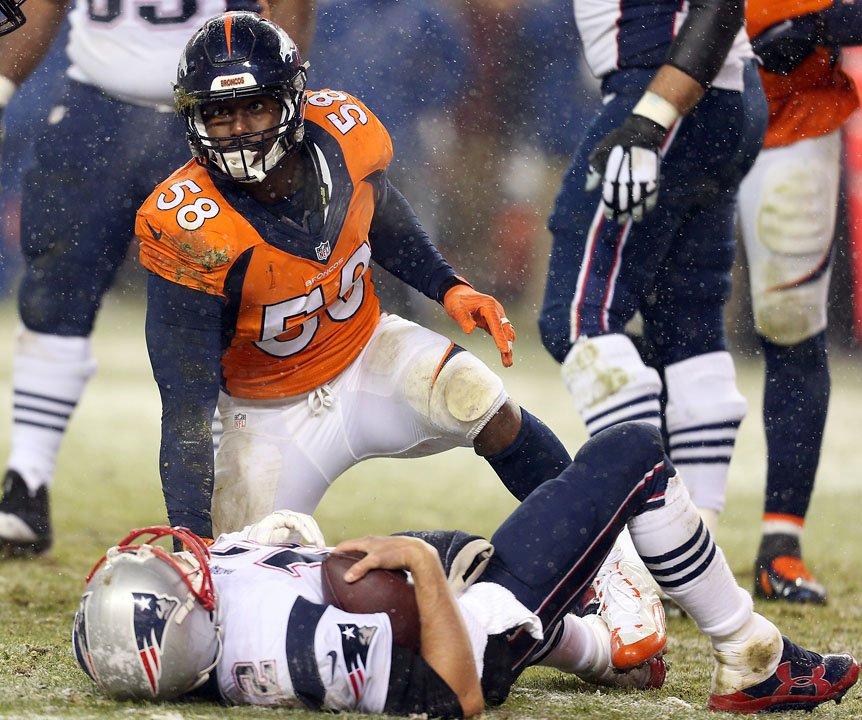

Robert Kraft says he supports Tom Brady's decision despite 'unjust and unreasonable' penalty.
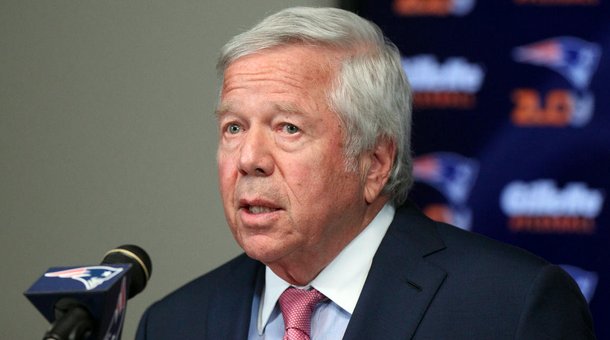

a decision rendered by Goodall
ignoring eyewitness testimony
ignoring science (not a single scientist came out in support of the NFL, every study debunked the NFL)
ignoring the fact that every legal mind debunked the NFL's case (not the authority, the evidence)
false leaks
lies
suppressed evidence
inconsistencies
Roger making a mockery of due process by ruling (but letting a subordinate claim such) and then hearing the appeal because he claims he didn't make the initial ruling
Roger loses every-time an objective third party gets involved
The courts said Roger has the authority to do what he wants, to act like he did, because the players gave him that right. That's all they ruled on
Roger will never be trusted with such authority again, he diminished the integrity of the position he holds, the next union contract will look very different
You can only play the hand he played once in a lifetime
Can't wait for the season to begin, going to be yet another great season for the Patriots
ignoring eyewitness testimony
ignoring science (not a single scientist came out in support of the NFL, every study debunked the NFL)
ignoring the fact that every legal mind debunked the NFL's case (not the authority, the evidence)
false leaks
lies
suppressed evidence
inconsistencies
Roger making a mockery of due process by ruling (but letting a subordinate claim such) and then hearing the appeal because he claims he didn't make the initial ruling
Roger loses every-time an objective third party gets involved
The courts said Roger has the authority to do what he wants, to act like he did, because the players gave him that right. That's all they ruled on
Roger will never be trusted with such authority again, he diminished the integrity of the position he holds, the next union contract will look very different
You can only play the hand he played once in a lifetime
Can't wait for the season to begin, going to be yet another great season for the Patriots
